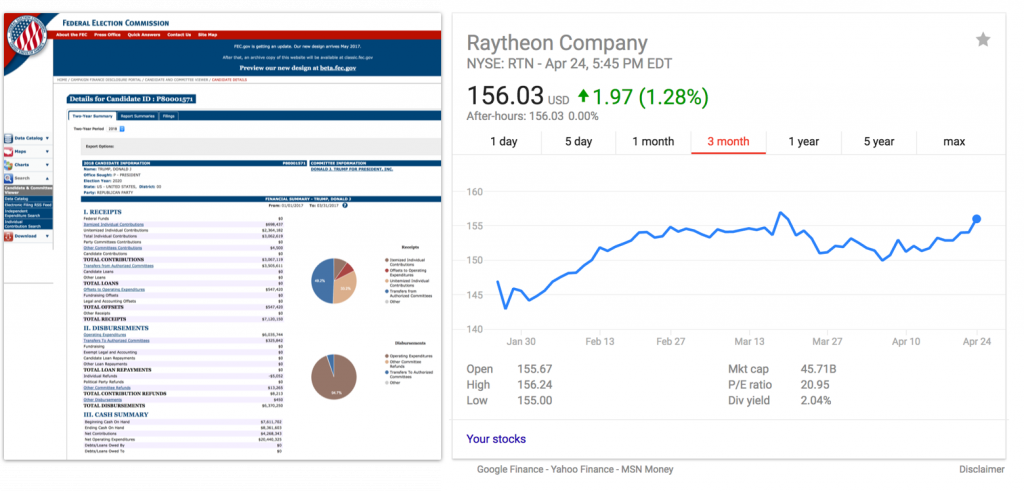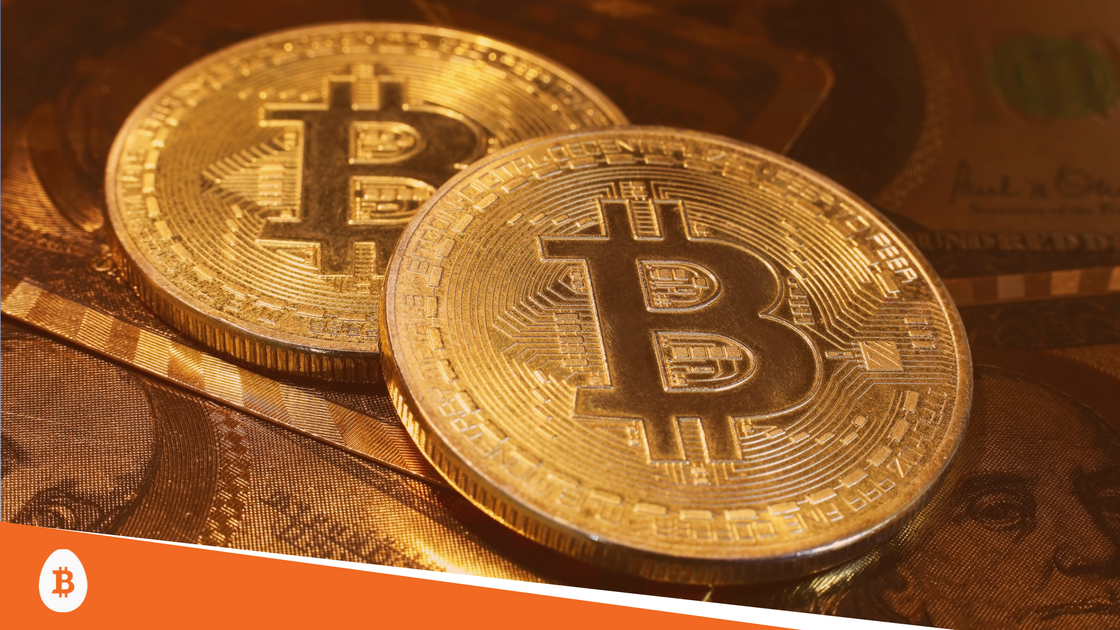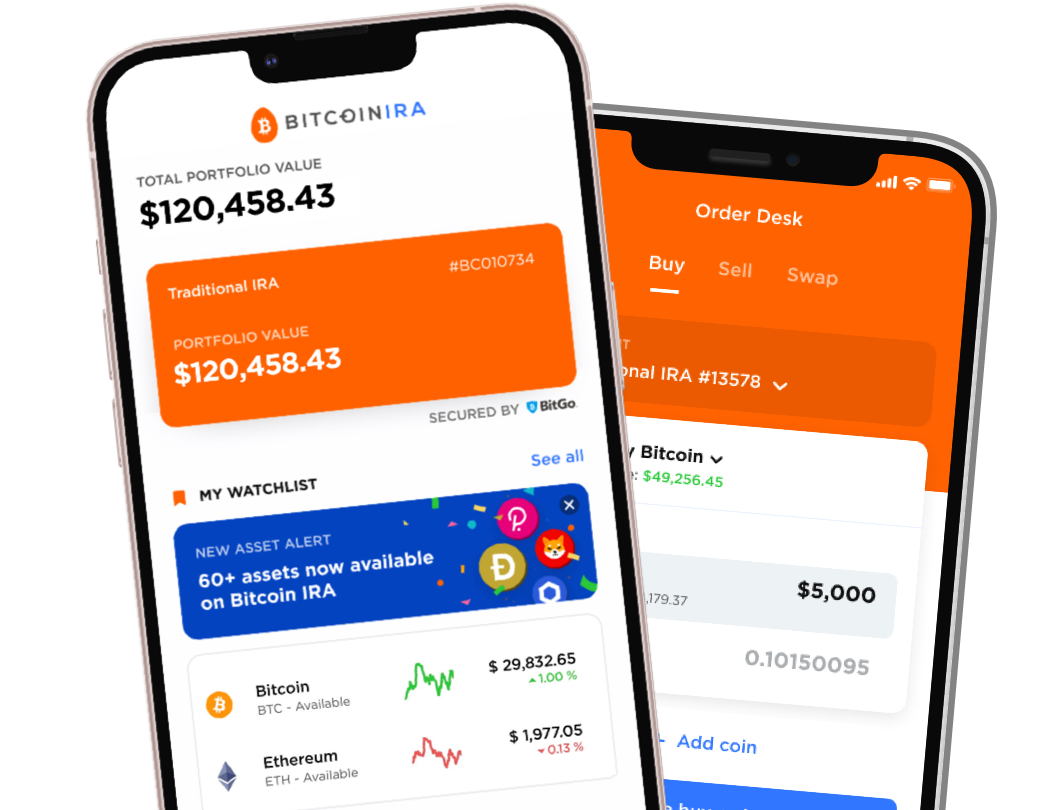President Trump probably made a nice bundle on the missile manufacturer Raytheon stock recently after dropping their products on Syria. In 2015, Raytheon was named in Trump’s portfolio in an FEC filing for having made less than $200. Today, the cash amount probably exceeds that number, and we will probably see the profit from this stock in the next Trump FEC filing.

These records and research of the US Government Office of Ethics are searchable and public as required by good governance to limit and deter conflicts of interest just like this one. Though civil servants are required to show these records, our individual taxes paid are not traceable. The technology needed currently exists to distribute each of our payments and make them fully accountable.
Imagine that you could publicly track your tax payment to a slush fund and then into one of the $1.4 million price of each Raytheon missile. You could accurately calculate the money each operation costs, what department of the government issued it, even the base and soldier that released it. Imagine you can access this information as an American citizen but having the ability to keep it private from others, just like many of our other services like Social Security, and only allow those with full clearance to see everything while only revealing limited information to the public instantly. If funds are registered on the Blockchain, you would be able to do this easily. In fact, we could trace which towns and states paid for each of these missiles. Would this stop the war? Perhaps, as our ability to discourse on the internet would be backed by information. Now, we can accurately answer the question of “if we can fund these missiles how come we cannot feed hungry people?”
Groups of people could organize, exchange ideas, and quickly trace each payment when they visit their elected officials and when they pay taxes. Imagine Facebook and Twitter as a public utility. Voting could be done on the blockchain, too. Corruption could be a thing of the past as no dollar could be siphoned off as it is now due to traceability and the opacity of current governance models. Transparency is the future of governance as we build out these tools and this is the promise of decentralized technologies.
Imagine what we could do with $2.99 trillion and the level of genuine democratic engagement created by this transparency.







 3,500+ 5-Star Reviews
3,500+ 5-Star Reviews